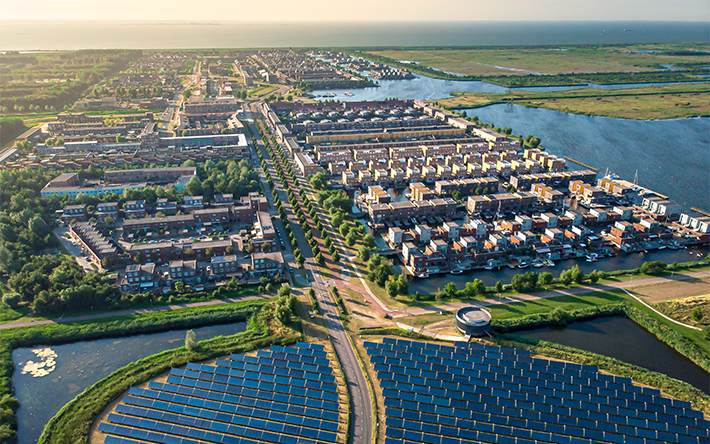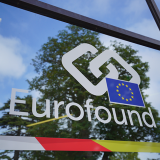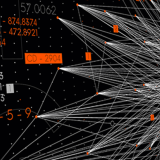
Predvidevanje in obvladovanje vpliva sprememb
Predvidevanje in obvladovanje vpliva sprememb je ena od šestih glavnih dejavnosti v delovnem programu Eurofounda za obdobje 2021–2024. Eurofound bo predložil dokazila o strukturnih gibanjih, ki vplivajo na gospodarstvo EU in trge dela. Ta gibanja so zlasti posledica digitalizacije in prehoda na ogljično nevtralno gospodarstvo , deloma pa nanje vpliva tudi kriza zaradi pandemije bolezni covid-19. Namen raziskave je zagotoviti pomoč oblikovalcem politik pri predvidevanju sprememb in pripravi evropskih trgov dela ter delovnih mest nanje.
Od leta 2021 dalje bo Eurofound zagotavljal vpoglede v vpliv teh megatrendov na življenjske in delovne razmere v EU. Na področju digitalizacije bo raziskava usmerjena v vpliv na pogoje zaposlovanja in dela ter tudi na delovni trg. Med področji, ki bodo zajeta v raziskavi, bodo tudi socialni dialog in njegova vloga pri oblikovanju strukturnih sprememb, regulativni okviri, socialno varstvo ter umetna inteligenca. Na podlagi prejšnjih raziskav o delu prek platform bo obdobje 2021–2024 priložnost, da se osredotočimo na opredeljevanje in ocenjevanje učinkovitosti političnih pobud glede spopadanja z izzivi, ugotovljenimi pri delu prek platform.
Eurofound si bo s preiskovanjem socialno-ekonomskih učinkov prizadeval tudi podpreti prehod EU na ogljično nevtralno gospodarstvo, vključno s krožnim gospodarstvom in izvajanjem instrumenta za okrevanje EU, imenovanega „Next Generation EU“. Omenjeni učinki vključujejo tudi spremembe na področju zaposlovanja ter preoblikovanje delovnih mest in pogojev, pa tudi porazdelitev učinkov politik o podnebnih spremembah. Nekaj tega dela bo temeljilo na rezultatih pilotnega projekta o prihodnosti proizvodnje (FOME) , ki ga je izvedel Eurofound.
Zaradi nadaljevanja tega dela v obdobju 2021–2024 bo Eurofound sodeloval z različnimi mednarodnimi organizacijami in agencijami EU, na primer z Evropsko agencijo za okolje (EEA) na področju družbenih učinkov politik o podnebnih spremembah. Poleg tega bomo še okrepili trenutno sodelovanje z drugimi raziskovalnimi akterji na področjih digitalizacije, torej s Skupnim raziskovalnim središčem (JRC), Agencijo EU za temeljne pravice (FRA) ter Evropsko agencijo za varnost in zdravje pri delu (EU-OSHA). Predvidena je tudi nadaljnja krepitev partnerstva z Mednarodno organizacijo dela (MOD) glede sprememb na področju dela.
- Infografika: Predvidevanje in obvladovanje vpliva sprememb v EU
„Na gospodarstvo EU in trge dela vplivajo megatrendi, zlasti digitalizacija in prehod na ogljično nevtralno gospodarstvo. Pomembno je raziskati, kako točno ti prehodi delujejo, kaj se spreminja in kako bo to vplivalo na podjetja ter tudi na delovno silo in celotno družbo.“
Irene Mandl, vodja oddelka za zaposlovanje



























